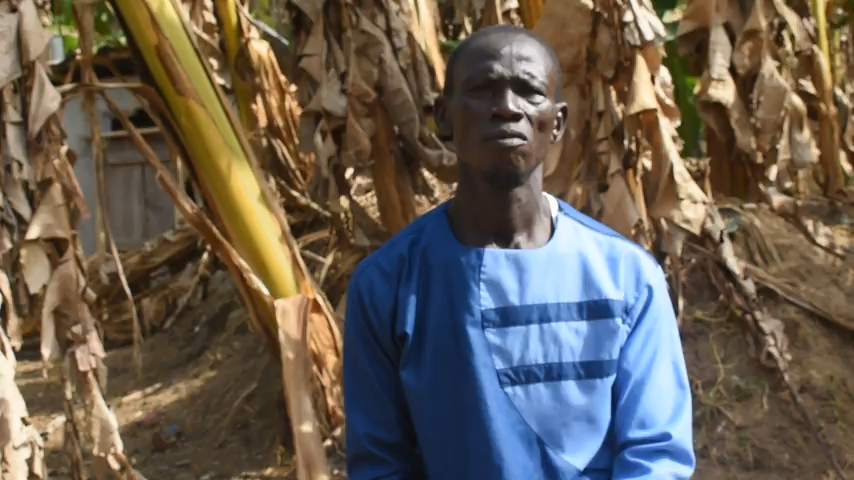Household Unity Revived Through the NOW Learning
Domain: Gender Equity
Participant Name: Aruna Sundiful
Community: Nianahun
Written by: Mariama Braima and Ishaika Nabieu.
Aruna Sundiful is a 48-year-old man, community member, and a NOW relative in Nianahun, a small community located in the Kailahun District in the Eastern region of Sierra Leone. Nianahun has an estimated population of 1,620, with agriculture and mining as the primary sources of livelihood. Prior to One Village Partners' partnership in the community, there was a lack of unity between Aruna and his wife. Aruna's wife often tried to control him, which led to constant challenges. "I used to throw challenges at my husband," Mamie, Aruna’s wife, confirmed. Their relationship was marked by frequent quarrels, and this lack of trust was aggravated by the fact that they had not conceived. This disunity resulted in a lack of focus and coordination at home. Aruna neglected his responsibilities, leading to severe consequences for the family. "In one month, my family members had to go to bed four consecutive times without food," Aruna said. The lack of unity between them made it difficult to save for emergencies, as both planned independently and confided in friends outside the marriage. Both Aruna and his wife frequently took out risky loans without consulting each other, and Aruna began selling their farm produce in advance to repay these debts, further contributing to food shortages at home. This disarray made it increasingly challenging for them to provide for their family and plan for the future.
The Nurturing Opportunities for Women (NOW) program was introduced to the community in 2019. Mamie attended the community meeting where the program was first presented, and volunteers from all categories were encouraged to register. "Based on the numerous problems I faced with my husband, I was motivated to join the NOW learning to help resolve my household challenges," Mamie confirmed.
Mamie began attending the sessions and invited her husband to participate in the first family session, where he joined the 'Gender-Bender' activity. This activity focuses on discussing the different roles and responsibilities of spouses. "The 'Gender-Bender' activity made me realize my past mistakes and opened the door for reconciliation with my wife for the sake of our household's development," Aruna said. After that, both husband and wife began listening to each other.
Despite Mamie starting to attend the sessions, it remained very challenging for both husband and wife to trust each other. Mamie struggled with confidence in understanding the sessions due to her lack of formal education. Concepts such as money symbols, budgeting, and setting realistic future goals were particularly difficult for her, which made it hard to share the learning with her husband. “At first, it was difficult for me to accept learning from my wife,” Aruna stated. Aruna's frequent attendance at the family sessions helped both of them better understand their roles and responsibilities at home, as well as the benefits that came with it. The facilitator's home visits through the NOW program also assisted Mamie in grasping challenging concepts, including money symbols, budgeting, and setting realistic, achievable goals.
Respect now exists between the husband and wife. They now save together and Aruna has stopped selling farm produce in advance to repay loans. The couple now plan together before starting farm cultivation, resulting in a sufficient supply of food at home. They also confide in each other and resolve disputes without involving third parties. “I have learned that family disputes always lead to setbacks in the home,” Aruna stated. Mamie now serves as one of the strongest pillars in the household.
The husband and wife now boast of saving Nle 400 (USD 2.00) each month. There is peace in the home, and household resources are well-managed. “In any household facing marital conflicts, it's essential for both parties to learn to resolve their differences, as there is no inherently good or bad spouse. In every relationship, for peace to prevail, both partners should give peace a chance to thrive,” Aruna emphasized.

